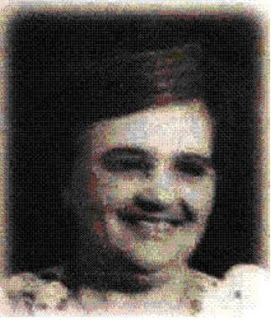“Father-in-law, please phone when you get there.”
His children’s spouses were more solicitous of him than were his two daughters and four sons. He had spent some months in Canada after his wife died. They had prevailed upon him to emigrate, so he would not be alone without anyone to give him loving care. But to him that was no way to live. And the love was not as advertised. He was always stuck in the house. He could not go anywhere except by car. His son-in-law António José was the one who treated him best: took him to Portuguese mass, drove him to Montreal so he could visit his children living there, and cheered him up as best he could. What bothered him above all was spending a month at one house, the next month at another, until he had finished making the rounds among the two sons and two daughters who lived in the city. But they lived so far from one another that it was almost like going from one end of his island to the other. He felt rather like a Holy Ghost crown on its Sunday travels.
As Christmas approached he began saying that he wanted to go home. Not “to Portugal” or “to the Azores,” but simply “home.” In his words and thoughts there was only one home, his own. The one where he had been happy with his wife and with the children, whom he deemed to have been better raised than what he was now seeing, due to changes in customs and feelings that abundance had wrought upon them. For that reason he had to spend Christmas at home. And set up the Nativity Scene for the Christ Child, as always. Not because he was eager to, but because of his sainted wife who was now with God, whom he had promised. For the rest of his life. And he could not imagine missing the midnight Missa do Galo mass at his church, either.
“Father, you have to stay,” his daughters and sons told him.
“Father-in-law, you have to spend Christmas with us. Don’t even think of leaving,” his son-in-law António José implored.
“Baby Jesus is born, and I am dying,” the old man would reply.
He came back. The day before Christmas Eve. But the plane had to divert to Terceira owing to bad weather. He did not see how he could get home the next day. He phoned, as his son-in-law had asked. His daughter answered. He told her what had happened. “Serves you right. Father, you are so stubborn. And now you won’t get your midnight mass, or anything else.”
He spent the night bundled up in blankets that a charitable soul had fetched from the airline storeroom. And it was not until 10 the next evening that he could start heading for home. He knew he was no longer going to make it in time for midnight mass. His parish priest was responsible for three churches, and would be celebrating mass in the first one at 10:30 p.m., in order to reach the second by midnight, then get to the third at 1:30 a.m. That is what comes of the priest shortage and a decline in traditional level of religious faith, which was also occurring in Canada. Still, it was better than nothing, although to him midnight mass had to be at midnight on the dot. And only next year would it be his parish’s turn to hold it at the right time. God willing.
He was among the first to board the plane, as if that would enable him to arrive earlier. Since he had not spotted him before, he was surprised to see Padre Augusto, a teacher at the seminary, who greeted him warmly and sat beside him. He recounted to the priest the course of events that resulted in his disappointment.
Padre Augusto offered to give him a lift to the street nearest his house. When they reached the village, one of the ceremonies he liked best had just ended, the kissing of Baby Jesus. It was then that Padre Augusto told him that if he liked, he could still attend a midnight mass. He was going to celebrate it, even if it was just for him alone. Another dozen people showed up. The homily was brief:
“No one would think that a child who was born in a manger and grew up in a land as poor as Nazareth could be so important. As an adult, the first time his words made people uncomfortable, a Pharisee told Nicodemus to investigate and see if this man from Galilee was some sort of prophet. But he was one who challenged those who obey the law without compassion: ‘Let him who is without sin cast the first stone.’ Everyone fled, blaming themselves, because the worst accusation we can suffer is that of our own conscience. We can escape the accusations of others, but never our own. Let us take care that our conscience, which is always with us, may be agreeable company. Like Jesus in the manger.”
Padre Augusto said little more. And it was unnecessary.
Once he arrived home, his first saudades were wet with tears for his sainted wife. Then more tears fell in amazement and gratitude, although for whom he could not guess. God be praised, but someone had already set up his Nativity Scene. Exactly as if he had done it himself. And on the bread board sat a round loaf of sweet massa sovada bread; anise, vanilla and tangerine liqueurs, as used to be the custom; and a jug of wine and rabbit stew. He ate and drank, giving thanks without knowing whom he was thanking, or whom he ought to thank.
That night he dreamed that he was dreaming. This happened to him often – dreaming that he was dreaming. And he dreamed that he was dreaming that God himself was explaining to him how the Nativity Scene had been put up and how everything else had wound up there.
He saw the figures emerging from their nearly year-long slumber. Startled, they awoke to the restlessness of the one-legged shepherd, who called plaintively to them in the shoe box where they were stored. The one-legged shepherd was the only one who was never placed near the grotto, because his leg had gotten broken off many years before, so in order to stand him upright he had to be leaned against a volcanic rock, in a patch of moss.
“There’s no one to assemble the Nativity Scene,” he said.
“What can we do?” asked another shepherd.
“We’ll set up the crèche ourselves.”
That was a good idea, but who would go hunting for the moss?
“The chimney sweep will, because he’s more used to climbing up and down places than anyone.”
And so it was decided. He gathered moss from the trunk of the old fig tree, from the north-facing wall, and among the narcissus clumps. The crèche stones were all stored in what for many years had been the outhouse at the far end of the pigsty. After that each figure was placed in its customary position. It was then that the laundress hurriedly returned home and fixed the liqueurs, baked the bread and stewed the rabbit. But the one-legged shepherd was the last to arrive, so once more he stood there at the foot of the crèche.
The next day he picked up the one-legged shepherd and leaned him alongside the manger. (The only detail God had neglected to explain to him in the dream was that observant Jews do not eat rabbit.)


















